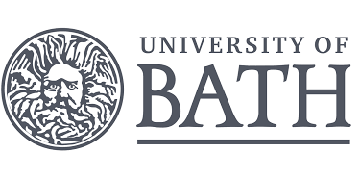University of Bath: £17M iCAST project launches at Swindon Carriage Works
The project, led by the Centre for Sustainable and Circular Technologies (CSCT) at Bath, is a collaboration between the Universities of Bath and Oxford, the High Value Manufacturing Catapult’s Sustainability Partnership (National Composites Centre, and Centre for Process Innovation) innovation experts at SETsquared, Local Enterprise Partnerships, investors and the companies that iCAST will be working with.
It is funded by the Research England Development Fund.
iCAST will operate as a research and development and collaboration hub for companies working on clean growth technologies. It will focus on translating sustainable chemical technology research into commercial products to tackle the global challenges of the climate emergency, sustainable development and plastic pollution.
The launch event at the Carriage Works took place on Friday 19 November, in front of an audience of researchers, industry partners and other key stakeholders.
University of Bath Vice Chancellor and President Professor Ian White said: “The University of Bath is so excited to lead this initiative. Not least as iCAST builds on the success of CSCT at the University which has had an exceptional 15-year track record in research and innovation.
“Furthermore, it supports the ambition set out in the University of Bath’s strategy to drive high impact research, develop our institutional research theme in sustainability and strengthen local, national and international engagement.
“It is a unique innovation facility, and the centre aims to address the most critical global challenge of sustainability by kickstarting a step change in the UK industrial strategy for translating sustainable chemical tech into clean growth.”
iCAST will aim to deliver 10 joint industry projects a year and is already on track to meet that goal, bringing together innovative companies with expert researchers to tackle some critical challenges to clean growth.
South Swindon MP Robert Buckland declared iCAST and the Carriage Works hub open, and said: “This space is for innovation. Innovation means making something new, but innovation is nothing new in Swindon. The town is home to thousands of patents; from the rail revolution up to the motor revolution and now into the current microchip revolution.
“Now we are on the cusp of the green revolution, changing from a linear economy to a circular economy.
“This centre is about allowing us to conserve, sustain and hand on to the next generation a world fit for all of us to live in safely, and not just us, but the animals and plants we share it with.”
Professor Matthew Davidson, Director of iCAST and CSCT, added: “iCAST is a critical mass of connected expertise and a unique consortium in the UK. We really hope that iCAST can make a huge difference to accelerate the translation to clean growth by tackling some really challenging problems.
“We already have over 40 companies as part of iCAST – they bring the really challenging problems to us that we can help to solve and we’re already seeing results. It’s the perfect model for joint industry projects.
“Swindon is geographically critical in this – it really is a pivot point between the west of England and the Oxford-Cambridge arc.
“We want to bring industry back to the Carriage Works.”
Professor Charlotte Williams, Deputy Director of iCAST and Professor of Inorganic Chemistry at the University of Oxford, said: “One of the benefits of iCAST is that it builds on substantial parallel investments in our universities and facilities – in infrastructure and people.
“We have a range of different facilities at the Universities of Oxford and Bath covering all aspects of scientific and engineering discovery, but we also are supported by colleagues in Economics and Public Policy in law, who help to make sure that those discoveries don’t sit in isolation but are truly implementable at scale.”
Executive Chair of UKRI Research England David Sweeney said: “I’m delighted to see that Bath is yet again expanding its footprint and working with proven partners both in the region and further afield.
“It’s a privilege for us to have government funding to spend on fantastic projects like these. The real privilege though is to meet the people who are doing it and to see the results.
“I look forward to hearing more over the next few years of what iCAST will achieve, including diversifying the local economy and working practically together at scale to address a range of climate challenges, and net zero priorities.”

